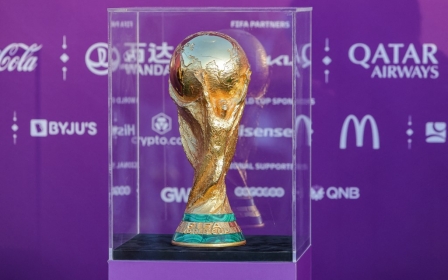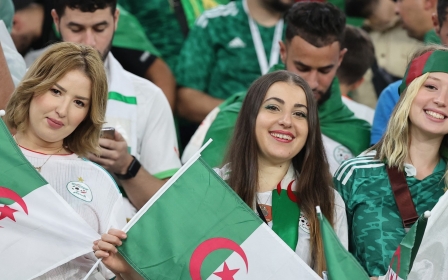Qatar World Cup 2022: How Google 'predicted' the final before a ball's been kicked

At South Africa's 2010 Fifa World Cup, we had Paul the psychic octopus predicting the outcome of matches.
By the time of the 2018 World Cup in Russia, the world of animal oracles had expanded, giving us Rabio, another psychic cephalopod, in Japan; Achilles, a deaf, white cat, and Spartak, a lemur, both furry pundits from Russia; and Mystic Marcus, a psychic pig based in the UK. Predictions were, predictably, somewhat hit-and-miss.
But people wanting to forecast the teams playing in this year's World Cup final, to be played in Doha on 18 December, needed only to have typed "Lusail stadium events” into Google's search engine, to find out that Brazil would face France at Qatar’s "jewel in the desert" stadium.
That's what the Twitter account AtaqueFutbolero did, posting the results for the world to see.
Stay informed with MEE's newsletters
Sign up to get the latest alerts, insights and analysis, starting with Turkey Unpacked
Football fans assuming that there is a giant conspiracy afoot, possibly involving shady betting syndicates, would probably be better off assuming that it was an error on the part of the tech giant, or a "data void", in the words of a Google executive.
Google has plans to address such misinformation, and last month announced new updates to tackle the issue, with plans to publish a “content advisory” if users Googling for a given subject get poor-quality search results.
Google’s Pandu Nayak, the vice president of search, believes this innovative action will strengthen media literacy and combat misinformation worldwide.
“Sometimes interest in a breaking news topic travels faster than facts, or there isn’t enough reliable information online about a given subject," Nayak said. "Information literacy experts often refer to these situations as data voids.
“To address these, we show content advisories in situations when a topic is rapidly evolving, indicating that it might be best to check back later when more sources are available.”
This article is available in French on Middle East Eye French edition.
Middle East Eye delivers independent and unrivalled coverage and analysis of the Middle East, North Africa and beyond. To learn more about republishing this content and the associated fees, please fill out this form. More about MEE can be found here.




